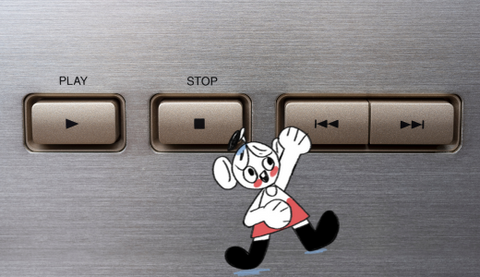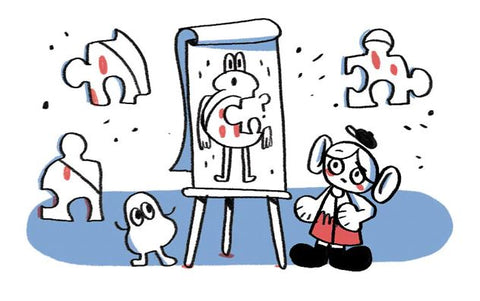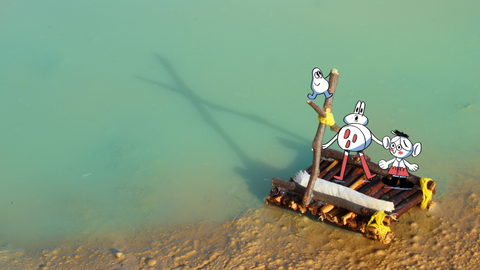
Written by Richard Sullivan
Workshop Facilitator & Agile Coach
Great facilitation is a learnable skill.
We were beginners once too, and we can remember what helped us start and progress in our workshop facilitation. Like cooking, there are some valuable basic techniques to acquire, and we’re going to share them with you. Training, practise and feedback are all you need in order to improve.
And just like in cooking, once you have those basic techniques down, you can use your new-found confidence to tweak those “family favourites” and create something really special. You’ll build new recipes and learn how to adapt to suit your “diner’s” needs.
But, first: some elements are crucial to success. You’ll find that they come up over and over again.
Let’s start with some of the important things you can do to help you get into that facilitation state of mind.
That ‘workshop facilitation’ mindset
Confidence.
Over the years, I have faced countless questions about that underlying confidence required to do what I do.
It is a challenge - how do you get to the point where you feel able to step over that line onto the stage, ready to ‘perform’?
I can remember that fretful feeling just before going on stage to perform at school and, to be honest, coming off again pretty quickly. I wasn’t ready. I felt too exposed.
So what have I learnt since then?
It’s not you, it’s you performing a role
Leading a facilitation can be intimidating. Fear of the unknown and of failure, if not understood and engaged with, will make it hard for you to perform effectively.
Bolster your confidence by finding the right mindset; thinking about what you can say to yourself to frame what you’re doing in a way that helps you succeed.
Most of us have been on stage playing a part at some point in our lives. I find it helpful to think about facilitating a workshop as being a performance. I am being a version of myself to achieve something, a purpose, with and for the audience. In that way, my mindset is not “how am I looking?”, it’s “how is this workshop going? Is this working, am I serving the purpose of the workshop?“. And that is a different - productive - headspace.
I am being a version of myself. I’m performing a role, something that is a learnable thing. You can learn this too.
Control the controllables
When I’m facilitating, I’m “on stage” and, in the same way that you prepare your lines when you are acting, there are things you can do to prepare for delivering a great performance.
Most of the performances you see are not spur of the moment. They may look it, but professional performers know precisely how much they can prepare and control - and they go to great lengths to control whatever they can. There are huge benefits to you as a facilitator if you do that too.
For example:
- Are you a morning person? Kick off your workshop in the AM.
- Choose the most reliable and comfortable tech/meeting room for the job. You might even want to go off-site if you’re looking for outside-the-box thinking.
- Share activities, research or questions you want to discuss in advance.
In future articles I’ll share the preparation checklists, rehearsal routines and rituals, and deliberate practices that I have found useful. No airline pilot would take off without consulting a checklist, so why would you launch your first workshop without one?
Honing the craft of workshop facilitation
With practise, you’ll get better - everyone does.
With training and feedback you’ll get better still. Always build some time for feedback into your sessions. Sure, you might just be glad to be finished after the first one, but it’s a valuable long-term habit that will provide you with useful insights - as well as proof of your improvement over time.
Remember to record how you think it went, as well as asking your participants for their thoughts.
- Did the exercises work?
- Did people understand what was asked of them?
- How can I make it more engaging for the participants?
- Was the tone right for the audience?
- How did our timings work out?
- Did we get the sort of responses we expected? If not, why not?
Intent over technique
We can learn an important lesson from great magicians and people who have captured the world's attention. Intent can be more powerful than technique. If your audience has faith in your authenticity, they will believe in you and forgive your mistakes.
Clumsy technique spoils the illusion, breaks the spell.
Roberto Giobbi, Swiss magician and author
Greta Thunberg often looks and sounds ill at ease on stage, but there is no doubting the impact of her delivery and her authenticity.
…..at the 2019 UN climate summit in New York, an infuriated Thunberg told delegates: “People are dying. Entire ecosystems are collapsing. We are in the beginning of a mass extinction, and all you can talk about is money and fairytales about eternal economic growth. How dare you!” Intriguingly, Thunberg insists her performance at the general assembly was an unusual one for her. “I’m never angry. I’m not even angry at home. That was the only time I’ve been angry. Before that speech, I thought, this is a once-in-a-lifetime opportunity. I need to make sure something comes out of it…...”
Guardian Sun 11 Oct 2020
By believing in the objectives you have set and your methods for achieving them, you bring people along on the ride.
Facilitate your own confidence
A phrase or a quote can help put you in the right frame of mind when learning to do something new. An affirmation or mantra. You may have one already.
One I found recently is something written by Amelia Mary Earhart, a pioneer of flying and was the first female aviator to fly solo across the Atlantic Ocean. She set many flying records, and wrote best-selling books about her experiences. Her motto?
“The most effective way to do it, is to do it”
This is as true for facilitating as it is for anything else. You will learn so much by putting things into practice and trying it out.
The bedrock of workshop facilitation
Great facilitation starts and ends with you. Your mindset, your preparation and your practice.
Start out with baby steps. Maybe lead one exercise before handing over to someone else, or practise with a team you already know - or even in a safe environment outside work.
Practise your ‘performance’. Work out what can be controlled. Believe in what you are trying to achieve. Open yourself up to constructive criticism.
But however you start, “The most effective way to do it, is to do it”.
-
Want to read more about great workshop facilitation? We've got tips for anxious, introverted or inexperienced facilitators and the inside line on one simple question that could inspire your team to have better ideas.









